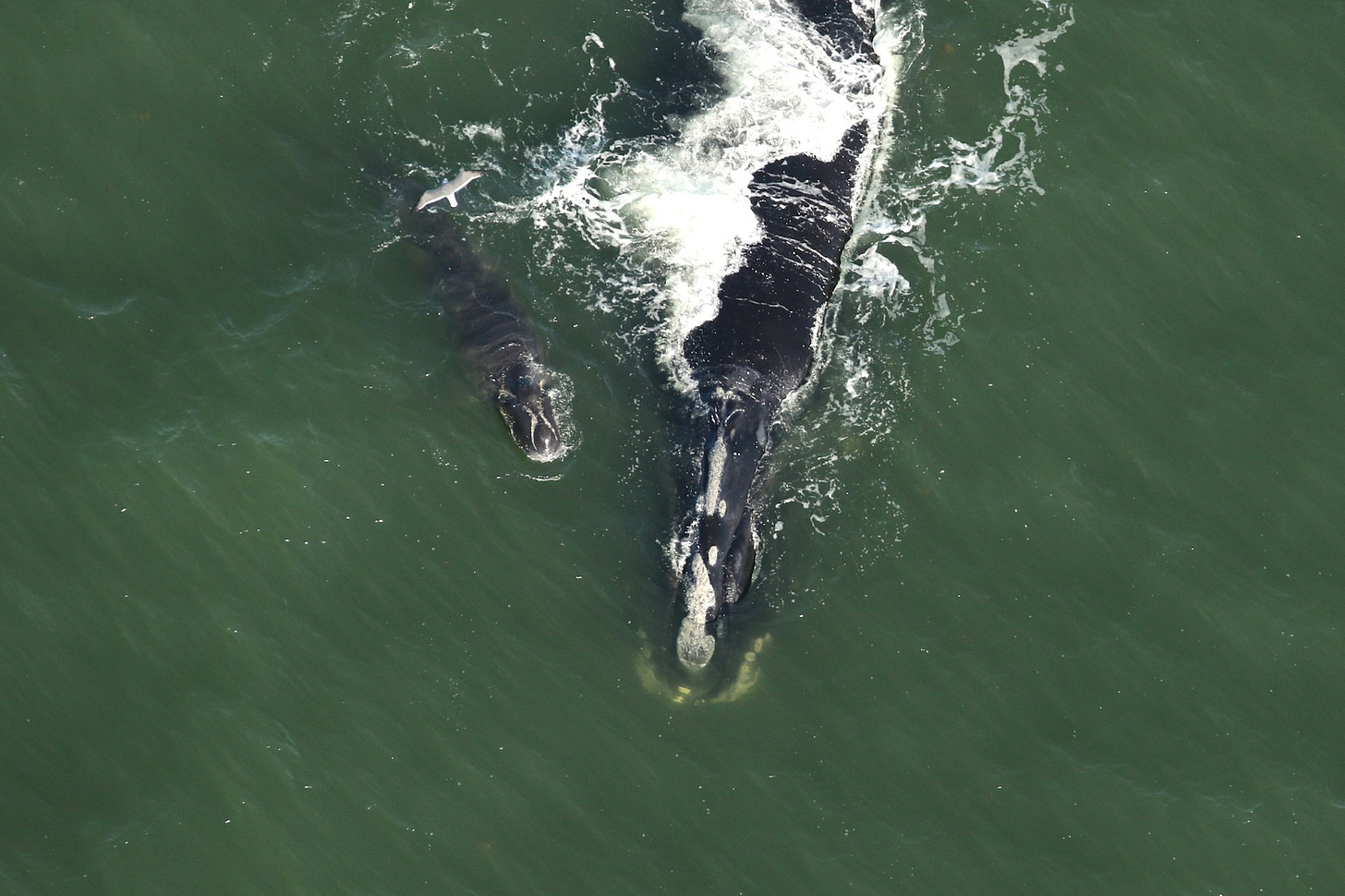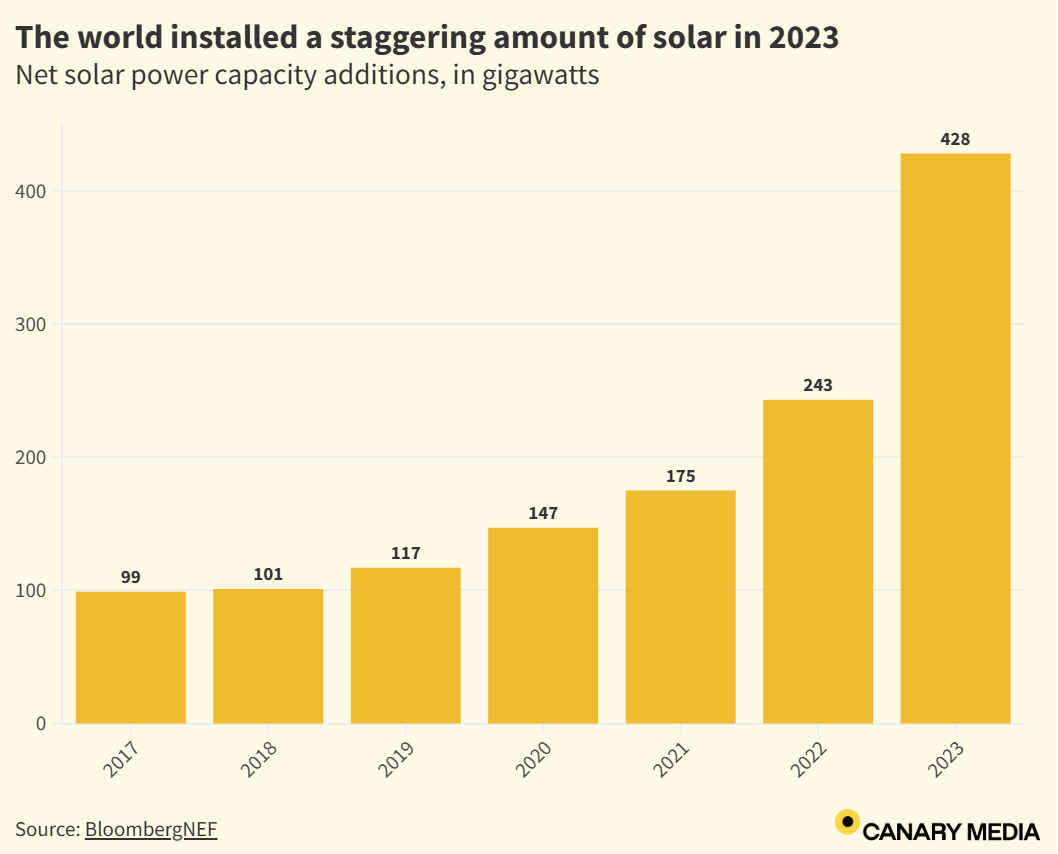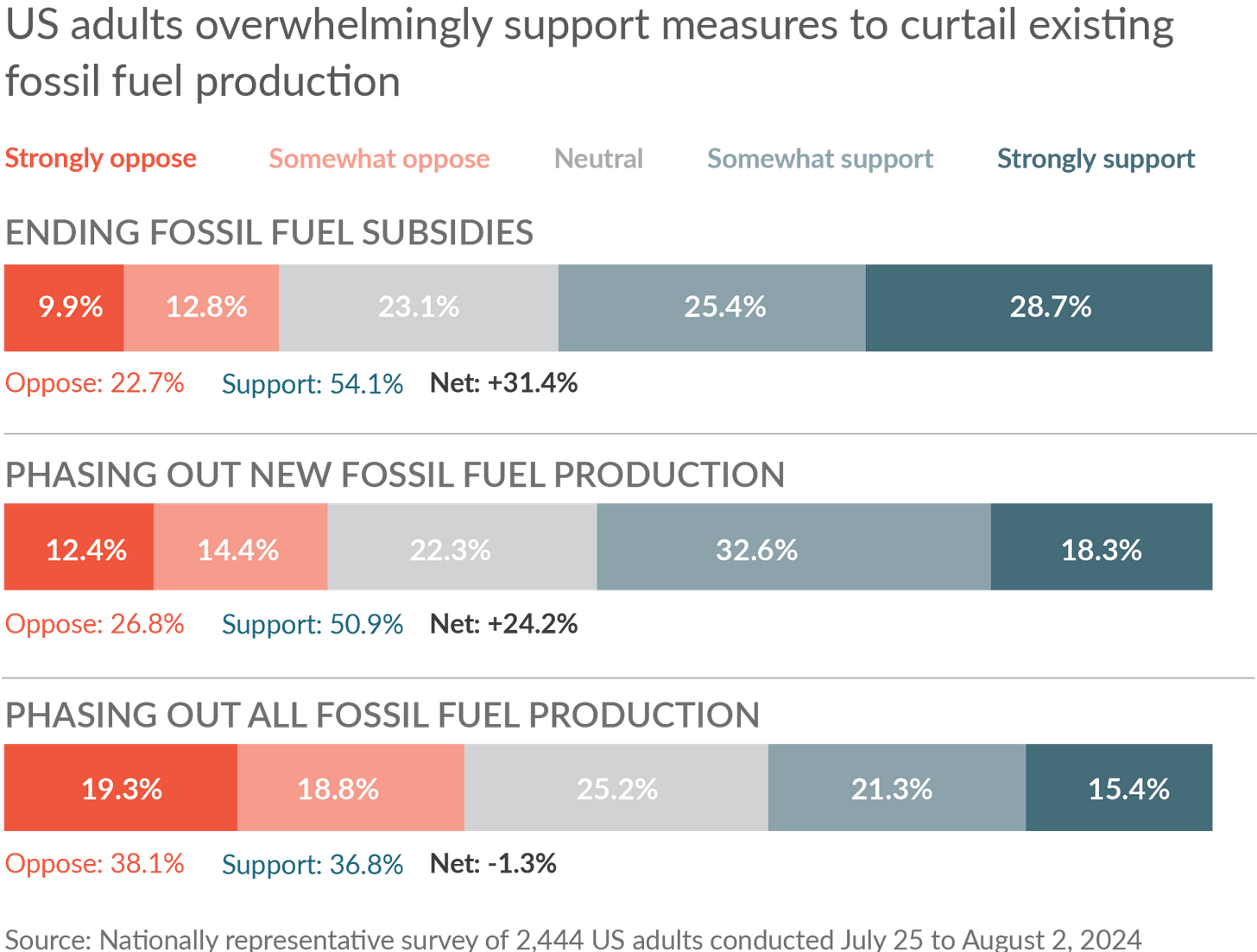Rising unrest and the need for radical change
Progress Marker #1
Hi there!
Every Sunday from now on, I intend to send out what I’m calling (though the name may change) a “Progress Marker”: a collection of stories and articles from the past week showing the ground that’s being won and lost.
These Progress Markers will be my way of keeping up with the news cycle at the same time that I do original reporting for more “evergreen” stories delivered midweek, with only the occasional connection to anything that’s trending.
Anyway, time to dive in.
– Syris Valentine
An Environmental Amuse-Bouche
Among the many tragedies of humanity’s collective impact on the planet has been the decimation of many of the most truly awesome forms of life on Earth — including whales.
Industrial whaling killed so many of these behemoths from the deep that, today, one in four species are threatened with extinction. This slaughter has also meant that, until recently, we couldn’t comprehend the incredible lifespans they have, a new study shows.
We’ve known since the ‘90s that Arctic bowhead whales can live for 200 years or more, The Guardian reported. And the new findings show that other species, specifically the right whale, can also live for 130 years or more — if they’re left alone.

This isn’t entirely a surprise. “Whales are the largest living animals,” the researchers write, “and body size is highly correlated with longevity.”
But confronted with countless threats — including illegal whaling, boat strikes, noise pollution, and the consequences of climate change — the critically endangered right whales are struggling to recover their populations (fewer than 400 individuals remain in the world) and enjoy the longevity that they otherwise would.
In Other Whale News:
Just this past week, a southern resident orca in the Puget Sound named Tahlequah (a.k.a. J35), who broke hearts in 2018 after carrying the body of her dead child for 17 days, gave birth to another calf that died just days after it was born.
Tahlequah, who has two other living, healthy calves, has been spotted in mourning: once again carrying the body of her dead calf for miles around the Sound.
The Week in The Rearview
2025 has opened with dark portents.
At least 15 people were killed when an armed man, reportedly a 42-year-old Army veteran, drove a truck through a New Years Eve crowd on Bourbon Street in New Orleans.
Later that same morning, a Tesla Cybertruck filled with fuel and fireworks exploded outside the Trump International Hotel in Las Vegas, injuring seven people. (The driver, also an Army veteran, reportedly committed suicide before the explosion went off.)
To make matters more unsettling, on January 1st, the FBI announced that they had recovered the largest cache of “finished explosive devices” in its history at a farm in Virginia. Federal agents found more than 150 homemade pipe bombs at the home of a man named Brad Spafford.
Neighbors have reported that Spafford had been stockpiling weapons since early 2023, even losing three fingers on his right hand as a result of his experiments with improvisational explosives.
There have also already been 5 different mass shootings in the United States in 2025 as I write this, including the assault on Bourbon Street.
I do not record all of this to suggest that these incidents are in any way connected. No threads have yet been pulled that unite them. Rather, I document this as evidence of the unrest that has a chokehold on the American public.
The American people are unwell. Tensions continue to rise even as some citizens (mainly men) snap and resort to violence.
I can’t begin to predict any specifics for what the rest of the year has in store for our imperiled nation. But I can tell that people need new outlets that don’t end with bloodied bodies in the street.
A renewed protest movement would, conceivably, be a healthier conduit.
Protesting is an important tool, but we may need more than that.
We need venues, networks, and organizations that allow us to enact enduring systems change at the levels where we can still make a difference.
We need to funnel the disaffected into these forums, so they can channel their distress and energy into actions capable of affecting social progress instead of acts of violence that leave people shell shocked and scared but the system unscarred.
Progress Markers
Here are some of indicators from the past week of ground lost and won:
Solar installations around the world are booming, and 9 other charts – Canary Media
According to the UN Secretary General, “we have just endured a decade of deadly heat,” with each of the last 10 years claiming a spot among “the top 10 hottest years on record.” – The Guardian
Humanity’s footprint as seen from space – Yale E360
Voters in the United States are in favor of phasing out fossil fuel extraction. – Climate & Community Institute
The Montana Supreme Court just upheld a ruling in a multi-year climate lawsuit on behalf of the state’s youth uplifting their right to a “clean and healthful environment.” – Grist
What I’m reading:
To avoid a collapse of modern society, “we need dramatic social and technological changes.”
According to a researcher who conducted a comprehensive review of more than 360 studies and 70 books on societal collapse, nothing short of a profound transformation in the way we live and function today can save us from some form of social collapse.
Collapse, however, means different things to different people: from a rapid decline in standards of living to human extinction.
Regardless of what definition you choose, the only way to avoid any kind of collapse lies in radically reimagining the politics and economics that govern the way we live.
– The Guardian
Plagued by drought, Ecuador’s hydropower is struggling, leading to hours-long outages.
Over the last decade, Ecuador has sought to dam its rivers and use the energy that coursed their channels to fuel a sustainable path to growth and prosperity.
But with climate change disrupting rain across South America and plunging much of the continent into drought, Ecuador’s rivers and reservoirs have dried.
The grid strain has led to daily outages that last up to 14 hours, “shutting businesses and sending entire industries into crisis,” writes The New York Times.
Ecuador isn’t the only nation that depends on rivers whose levels are lowering as the world warms.
Norway, Canada, Turkey, Costa Rica, Zambia, and even the Western United States face similar vulnerabilities.
To shore up their energy systems, several countries are looking to turn back to fossil fuels while others invest in wind and solar.
– The New York Times
$60 million. That’s how much it might cost the Climate Justice Alliance (CJA) for adding its voice to calls for a ceasefire in Gaza.
In December 2023, the Environment Protection Agency selected the CJA to be one of its “grantmakers,” responsible for distributing grants to community-led climate and environmental organizations.
So far, only the CJA — out of 11 different grantmakers — has yet to receive funding.
If the funds don’t go out before Trump’s inauguration, they will almost certainly vanish — depriving much-needed resources to dozens of communities.
– The Verge
Phoenix endured 113 days of triple digit temperatures in a row last year. Heat will only get worse for the desert city.
To cope with the onslaught, ASU is leading an effort to get community members together to create plans for where trees are most needed for shade and cooling.
Their program also aims to help build a local workforce capable of redesigning the city’s built environment to better mitigate heat, conserve water, and improve the sustainability of the city overall.
“It cannot just be a volunteer effort—that’s important, but it’s never going to be enough,” the woman leading the program said. “So we’re trying to create something that’s really going to last.”
– Inside Climate News
Entering into 2025, Extinction Rebellion UK is pushing for climate resilience through rewilding.
Since 2018, XR made a moonshot call for the UK to reach net zero by 2025.
But given that hasn’t happened and that eliminating carbon emissions with the urgency demanded is impossible within the systems currently running the world, one of the founders of XR is making new demands.
For one, Rupert Read has added his voice to the call for a larger and more inclusive climate movement that expands its efforts beyond street demonstrations, including into adaptation efforts.
“As well as thinking about preventing and decarbonising, we need to start thinking about coping, adapting and preparing,” Read writes. “The good news is, there are many ways that ordinary people can do that.”
– The Guardian
Other goings-on
Other bits of news that came across my feed:
With dams along the Klamath River finally down, the next step is reclaiming flooded lands and restoring ecosystems. – The Guardian
Hospitals are struggling with staff and personnel shortages. Unions and worker cooperatives are stepping up, training the needed workforce, and ensuring that those new workers own their labor. – In These Times
Ann Arbor, Michigan has created a new “sustainable energy utility” to focus on installing rooftop solar on and battery storage in buildings throughout the city. – Utility Dive
A German museum converts waste heat from the city sewer into energy to heat and cool the building. – Power Magazine
If Los Angeles has a reputation beyond Hollywood, it’s of sprawl and smog. Solutions to both may finally be within reach. – The Atlantic
Dockworkers and their unions are back at the negotiating table. If the workers don’t get a good deal, they could go on strike starting January 15, with repercussions nationwide. — Axios
The sea level rise accompanying the climate crisis that oil and gas companies created could end up swamping the ports and terminals those same companies depend upon. — The Guardian
One Oakland resident rigged up his home with a system to capture rainwater and reclaim graywater, cutting the water he consumes by two-thirds. – the Guardian




